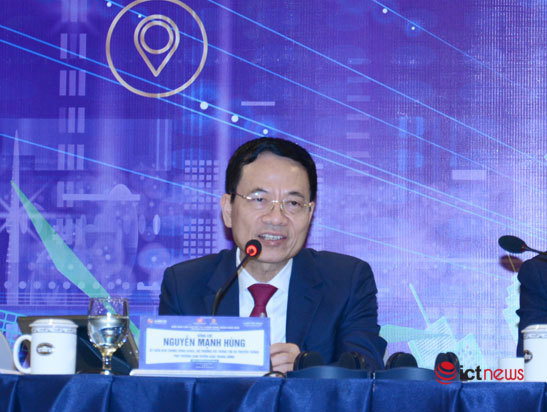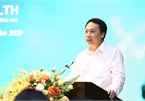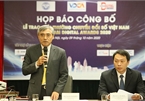At the ASEAN 2020 Smart City Summit, Hung said cities have many different problems to solve, but the problems vary among cities.

Minister of Information and Communications Nguyen Manh Hung
Local authorities have to choose the problems to solve first based on their priority. The problems could be environment pollution, public order and security, healthcare or education.
“Have the belief that technology in general and digital technology in particular can solve most of the problems we are facing. And choose the toughest problems to solve,” Hung said.
Hue, HCM City and Bac Ninh identified the most pressing problems andhave been solving them with new technologies.
According to Hanoi Vice Mayor Nguyen Doan Toan, in the immediate time, Hanoi will focus on developing smart urban technical infrastructure (lighting, water supply and drainage, smart traffic etc...) and smart residents.
In order to do so, Hanoi will set up a smart regulation center with a center for security monitoring and information security; center for supporting officers to use IT; center for press information and communication management; center for traffic control public crime prevention; and data assignment center.
Hanoi has chosen to handle traffic and tourism problems first. It will activate the integrated intelligent traffic center, which includes a visual traffic safety monitoring system, public security monitoring software, smart traffic light control system, electronic traffic signs, traffic control center monitoring software system, public passenger transport management software system, smart electronic bus ticket system, and fee collection system that aims to restrict personal vehicles.
| Minister of Information and Communications Nguyen Manh Hung says that digital technology can help solve most of the problems faced by cities. Local authorities should first deal with the most burning issues in their localities. |
As for tourism, Hanoi will build a tourist information portal on mobile devices and software to manage business and tourism activities.
HCM City’s Vice Mayor Duong Anh Duc said the city is considering the building of smart city as a solution to accelerate development and create a better environment for people.
HCM City has deployed utilities to better serve people in transport, healthcare, education and flood prevention, improving the quality of life.
Duc said HCM City will continue implementing the second phase of the smart city project in sync with developing a digital society and economy; put into operation and effectively exploit shared data; invest in a smart operating center and socio-economic forecast center; complete city-wide digital data transformation by 2025; use big data to modernize, reduce costs and improve the quality and predictability in key areas; and apply AI in smart city development.
Asked about how to prepare high-quality workforce for smart cities, Hung said that having enough qualified human resources for smart cities will depend on ways of approaching this issue.
If localities want to develop smart cities with their own human resources, they will have to recruit many experts. And this will be a big problem.
Instead, localities should order businesses. If so, they will have many good products with reasonable prices which will benefit people.
In other words, local authorities just need to identify their problems, set targets, make requests and order enterprises.
“Local authorities just need to become smart orderers and need to make institutional changes to accept new models of smart cities,” Hung said.
Truong Gia Binh, president of FPT, the largest Vietnamese IT corporation, said the smart city project is an opportunity for all sectors in the society.
Businesses will have a favourable environment to carry out digital transformation, which will help them develop sustainably. The State will have better management methods. And, people will have the best environment to live and work in.
In building an e-government and striving for a digital government, building smart cities, the benefits of people and sustainable development must be centered. No one will stay outside the race.
Binh stressed that urban digital transformation and smart cities must not begin from urban planning, but from a socio-economic development strategy which comprises four aspects, including drawing up a strategy, building institutional structures, setting policies and developing technological platforms.
Of these, a digital technology platform, where the core is open data structure interconnected and processed in real time, will act as the operating center, an analytical tool for urban digital transformation strategies and sustainability.
Together with the government, ministries and branches, private enterprises, the community, startups and public can cooperate by contributing data and applying smart city solutions to create many services and new added value for the community.
Trong Dat

Platform hoped to help with digital transformation in education
A school management platform called MISA QLTH was introduced by the Ministry of Information and Communications (MIC) on October 9 with a view to helping promote digital transformation in Vietnam.

Vietnam Digital Transformation Awards 2020 to honour 58 products
Some 58 products will be honoured at the Vietnam Digital Transformation Awards 2020, the Vietnam Digital Communications Association (VDCA) said on October 9.